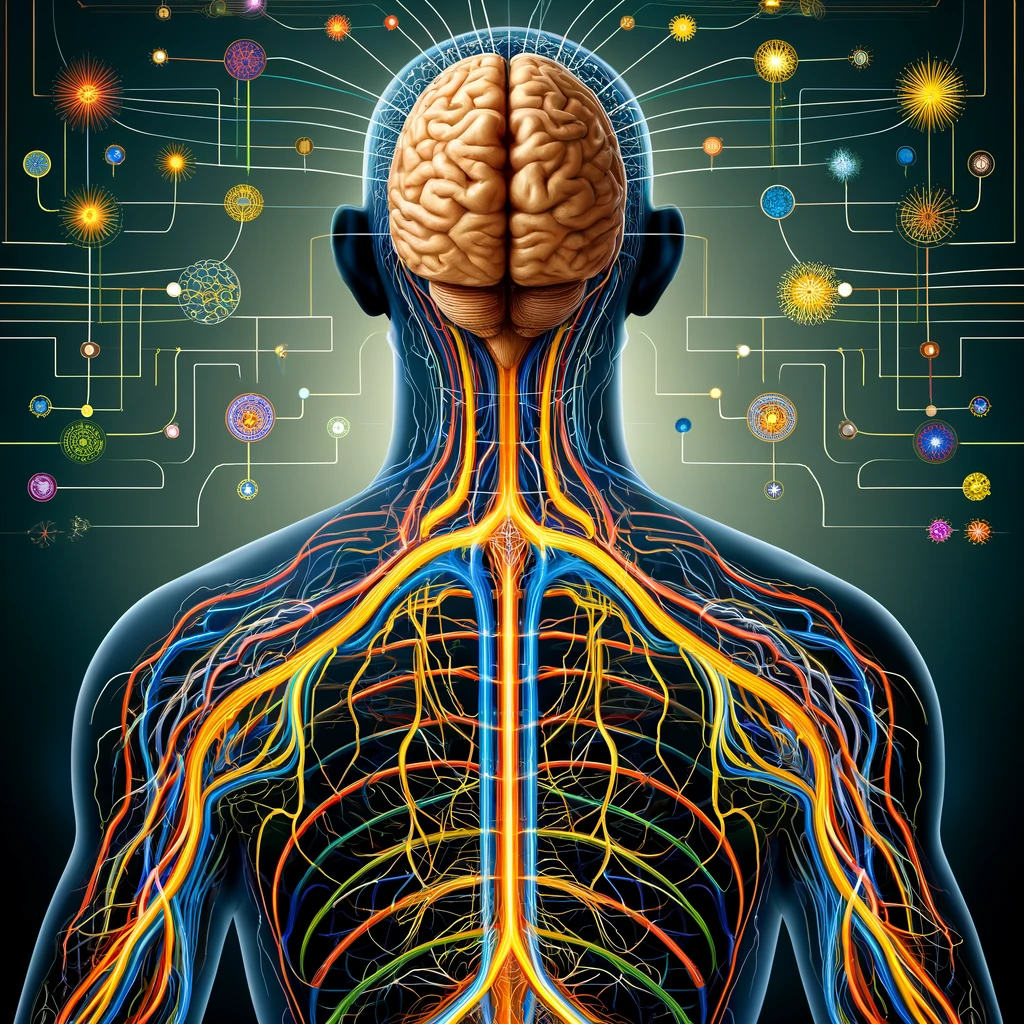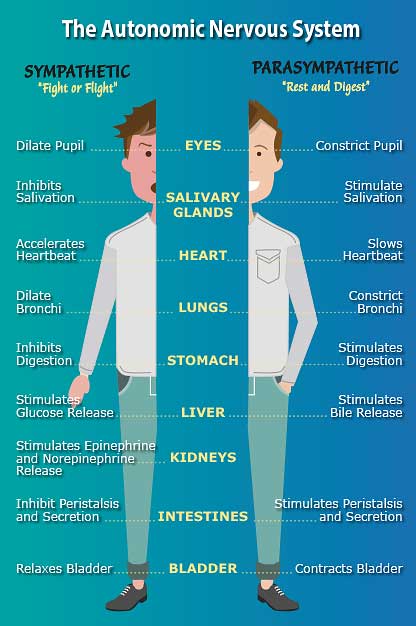We live in a world that constantly challenges us. Whether it’s the expectations we place on ourselves, the pressures from society, or the weight of past experiences, we are often navigating through stress, emotional wounds, and shifting relationships. We want to build better habits, heal from our past, and cultivate meaningful connections, but sometimes it feels like we’re running uphill. What if I told you that so much of this struggle has to do with something fundamental: the regulation of our nervous system?
This might seem a little unexpected—after all, when we talk about habit change, healing, or relationships, we tend to focus on the mind. We think about willpower, self-talk, or perhaps past trauma. Yet, the mind and body are not separate but rather an interconnected set of systems that function synergystically, and at the center of this connection lies the nervous system. When we understand how the nervous system functions and how it can be regulated, we realize the potential to unlock powerful tools that help us not just survive, but thrive in all aspects of our lives.
The Nervous System: Our Body's Command Center

At its core, the nervous system is our body’s command center. It’s what helps us perceive the world around us, make decisions, and respond to threats. It consists of two key parts: the central nervous system (our brain and spinal cord) and the peripheral nervous system, which branches out and communicates with the rest of the body.
But here’s where things get really interesting: the peripheral nervous system contains two further subdivisions, and these are especially important when we talk about regulation.
One is the sympathetic nervous system, often called the “fight or flight” system. This is what kicks in when you’re stressed, anxious, or in danger. Your heart rate increases, your muscles tense up, and you’re ready to react. The other is the parasympathetic nervous system, or the “rest and digest” system. This helps you relax, recover, and restore balance.
Ideally, there’s a smooth dance between these two systems. When you’re faced with a challenge or stressor, the sympathetic system activates to help you respond. Afterward, the parasympathetic system kicks in to calm things down. But here’s the catch: modern life can keep us in a constant state of activation. We often live in “fight or flight” mode for extended periods, leading to chronic stress, emotional burnout, and disconnection from ourselves and others.

Why Nervous System Regulation Matters
Nervous system regulation means being able to shift between these states effectively. It’s not about avoiding stress entirely—that’s impossible. It’s about learning how to come back to a state of calm, safety, and groundedness after stress has passed. When your nervous system is well-regulated, you feel more resilient, more capable of handling life’s ups and downs. When it’s dysregulated, life can feel overwhelming, and even the smallest challenges can knock you off course.
So how does nervous system regulation impact habit change, healing from emotional wounds, relationships, and work? Let’s dive deeper.
Nervous system regulation gives you the space to pause, reflect, and choose intentionally, rather than reacting out of stress or overwhelm. It’s like building a solid foundation for your habits to stand on.
Nina Saurer
Habit Change: Willpower Isn’t Everything
We often approach habit change with the assumption that willpower is the key. Whether it’s exercising regularly, eating healthier, or sticking to a new routine, we think that if we can just muster enough willpower, we’ll succeed. But anyone who’s tried to build a new habit knows that it’s not that simple.
The state of your nervous system plays a significant role in habit formation. When you’re in a dysregulated state—stressed, anxious, or constantly activated by the sympathetic nervous system—your brain is wired to seek immediate relief, not long-term change. You might crave comfort food, binge-watch TV, or procrastinate. This is because your brain is looking for ways to calm down, not take on new challenges.
Regulation, on the other hand, helps you engage the prefrontal cortex, the part of your brain responsible for decision-making and impulse control. When you’re calm and grounded, you’re more likely to make choices that align with your long-term goals. Nervous system regulation gives you the space to pause, reflect, and choose intentionally, rather than reacting out of stress or overwhelm. It’s like building a solid foundation for your habits to stand on.
Healing Emotional Wounds: The Body Keeps the Score

One of the most profound connections between the nervous system and emotional well-being comes from trauma and past wounds. As trauma researcher Bessel van der Kolk famously said, “The body keeps the score.” Our nervous system remembers past experiences, especially painful or overwhelming ones, even when we consciously try to forget.
When we experience trauma or emotional pain, our nervous system can get stuck in a state of hypervigilance or shutdown. This can manifest as anxiety, depression, or emotional numbness.
Even if we’ve mentally processed the event, our body may still be holding onto that fear, making it difficult to move forward or heal.
Nervous system regulation is key to healing because it helps us reconnect with a sense of safety. Practices like breathwork, mindfulness, gentle movement, or somatic experiencing can support the nervous system in releasing stored tension and trauma. By working with the body—rather than just through talking or thinking—we can unlock deeper layers of healing. When our nervous system feels safe, we’re able to process emotions, reframe past experiences, and finally let go of what’s been weighing us down.
Relationships: Co-regulation and Connection
Here’s where things get even more fascinating: our nervous systems don’t operate in isolation. In relationships, we often talk about emotional support, empathy, and understanding, but beneath all of that is co-regulation—the ability to help regulate each other’s nervous systems.
Think about a time when you were stressed or anxious, and someone close to you sat with you, listened, and offered comfort. Chances are, you felt your body calm down. That’s co-regulation in action. When we feel seen, heard, and safe with others, our parasympathetic nervous system can activate, helping us relax.
But the reverse is also true. When both people in a relationship are stressed or dysregulated, conflicts can escalate, misunderstandings multiply, and disconnection grows. The good news is that by learning to regulate your own nervous system, you’re better able to create a sense of safety and calm in your relationships. You can respond rather than react. You can offer presence rather than defensiveness.
In fact, studies show that secure attachment, which is foundational to healthy relationships, is closely tied to nervous system regulation. When both partners can regulate themselves and each other, the relationship becomes a source of strength and support rather than stress.
Work: Thriving in High-Pressure Environments

Whether you’re a leader or a team member, nervous system regulation plays a crucial role in how you show up at work. In high-pressure environments, a dysregulated nervous system can lead to burnout, overwhelm, or a constant sense of “putting out fires.” You may find it hard to focus, struggle with decision-making, or feel disconnected from your work.
On the other hand, when you’re able to regulate your nervous system, you can bring your best self to the table. You can think more clearly, problem-solve more creatively, and maintain a sense of calm even in stressful situations. Leaders who are grounded create an environment where others feel safe and supported, which fosters collaboration, innovation, and resilience within teams.
Whether you’re a leader or a team member, nervous system regulation plays a crucial role in how you show up at work. In high-pressure environments, a dysregulated nervous system can lead to burnout, overwhelm, or a constant sense of “putting out fires.” You may find it hard to focus, struggle with decision-making, or feel disconnected from your work.
Practical Tools For Nervous System Regulation
If you’re ready to bring more regulation into your life, here are some practical tools:
- Breathing exercises: Slow, deep breaths signal safety to your nervous system.
- Movement: Gentle yoga, walking, or stretching can help release tension.
- Mindfulness: Practices that bring you into the present moment can reduce stress.
- Connection: Spending time with supportive loved ones can foster co-regulation.
- Rest: Prioritizing sleep and downtime allows your parasympathetic system to activate.
References
-
Van der Kolk, Bessel. The Body Keeps the Score.
-
Polyvagal theory by Stephen Porges: Understanding co-regulation.

